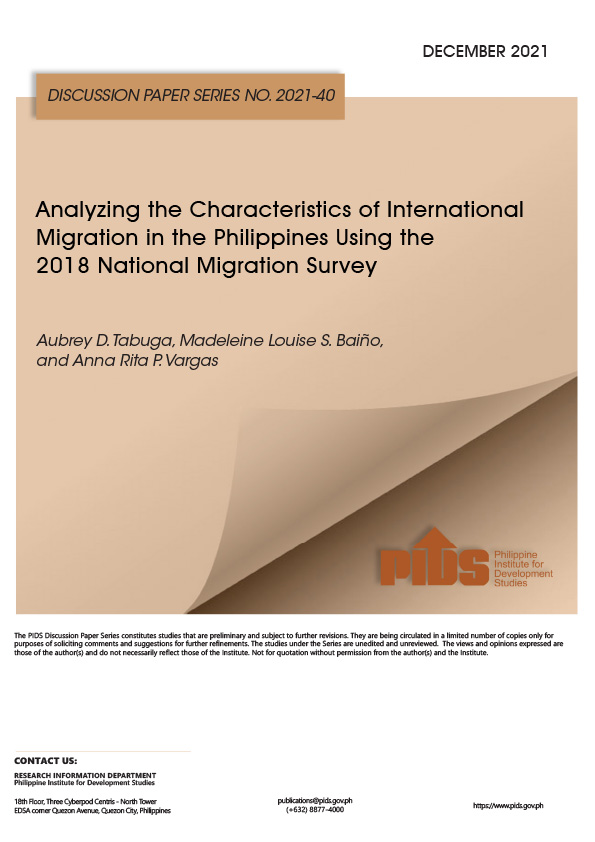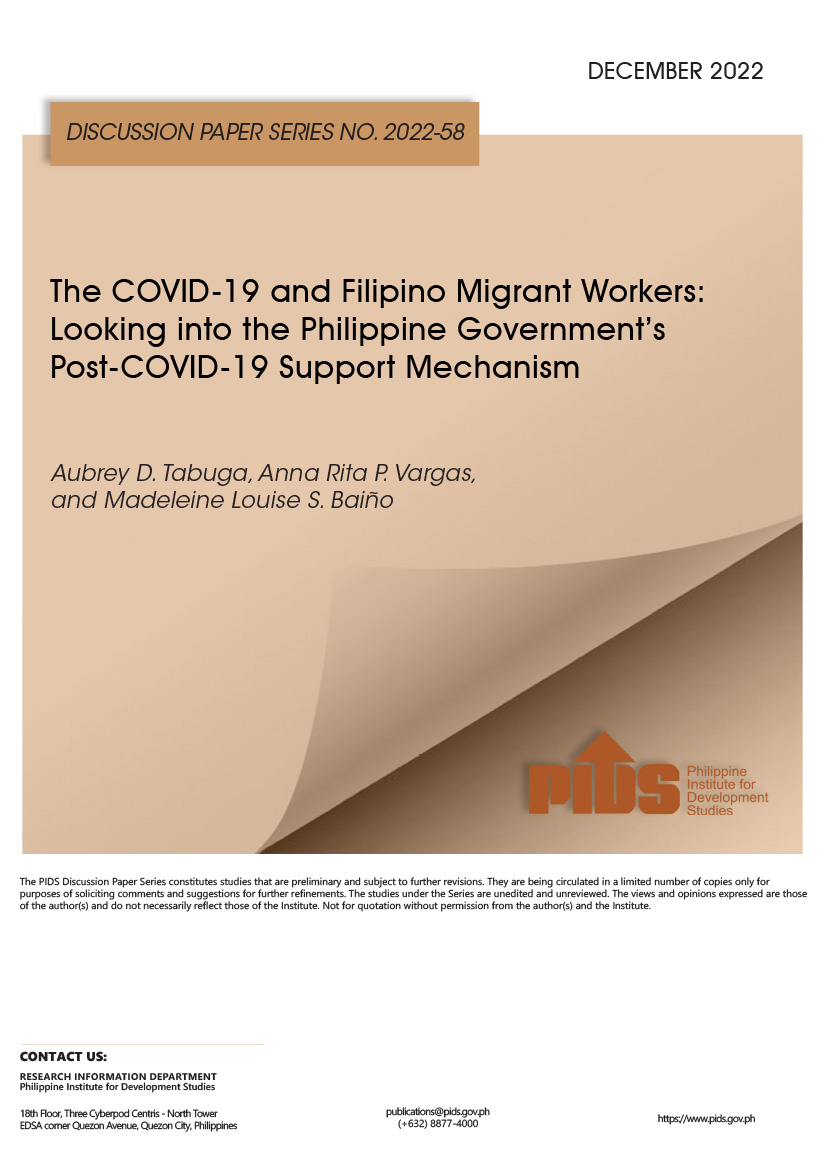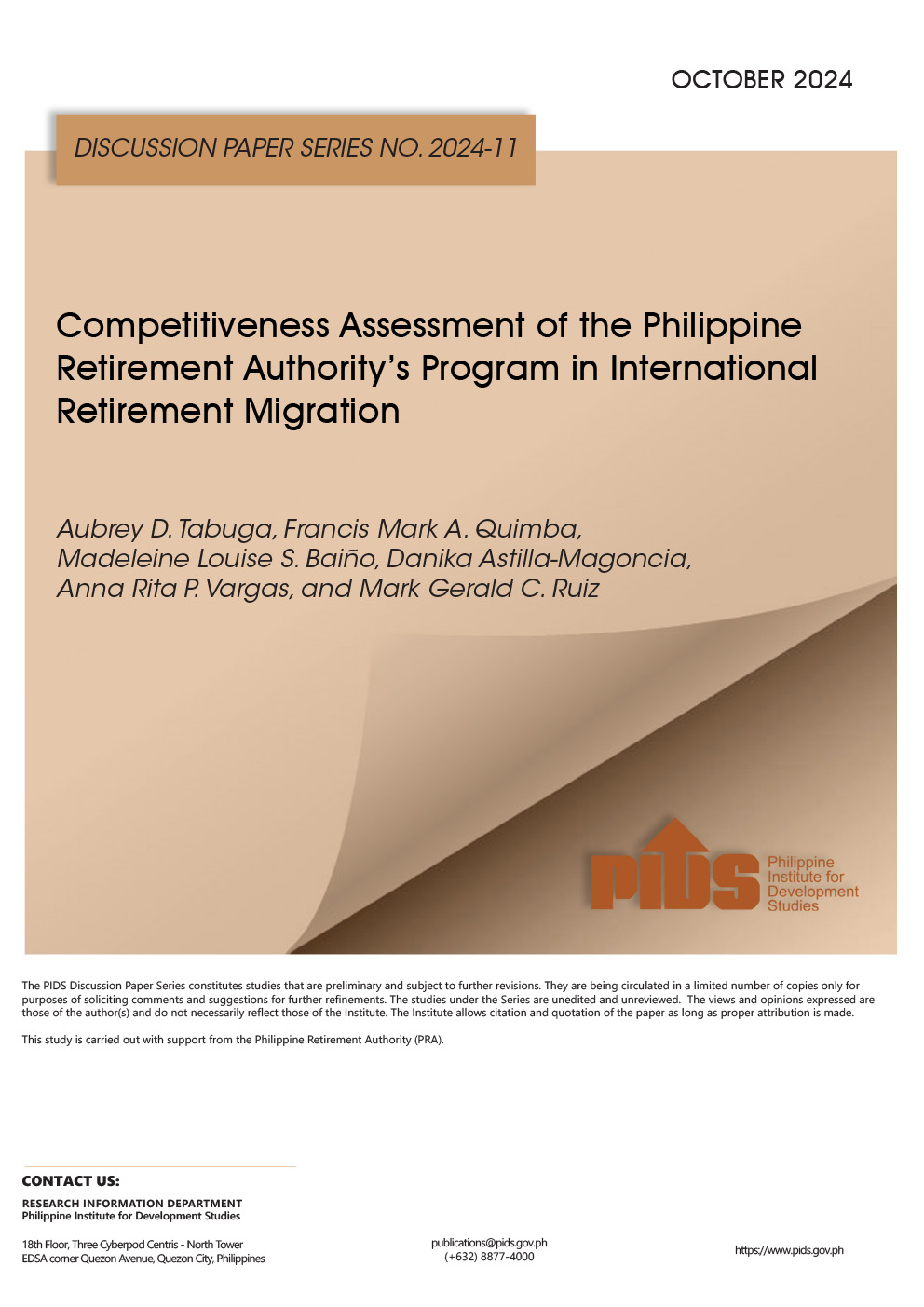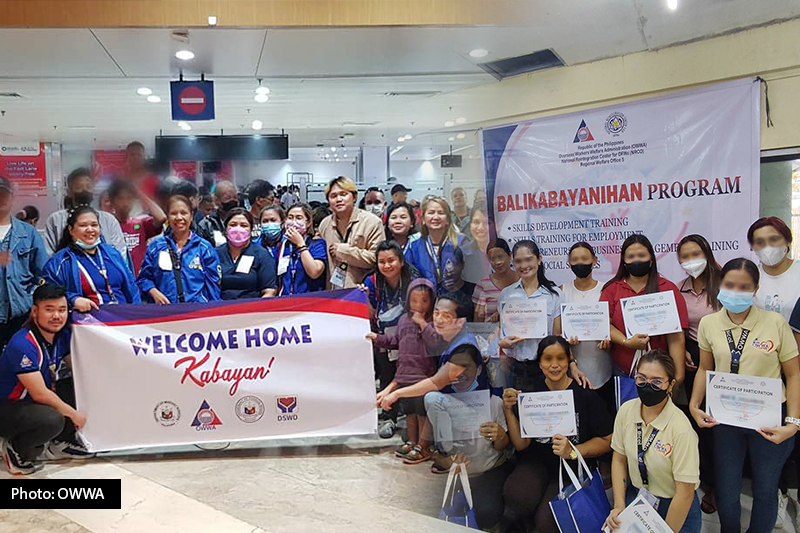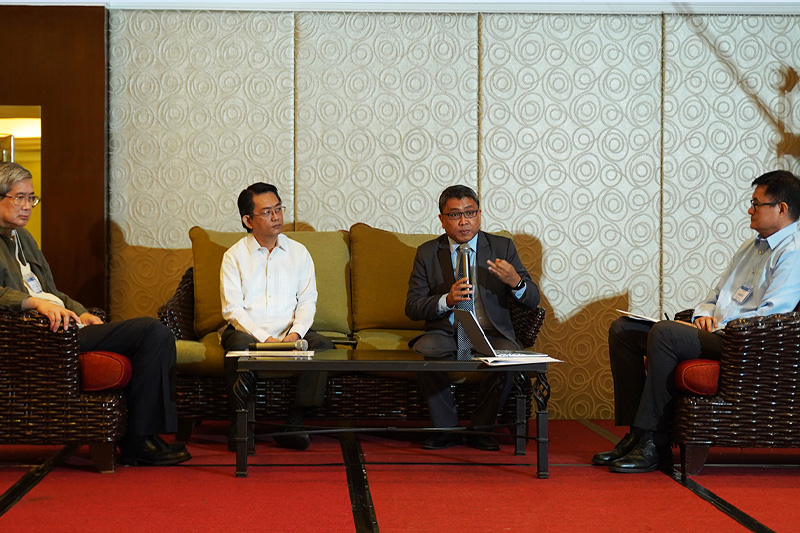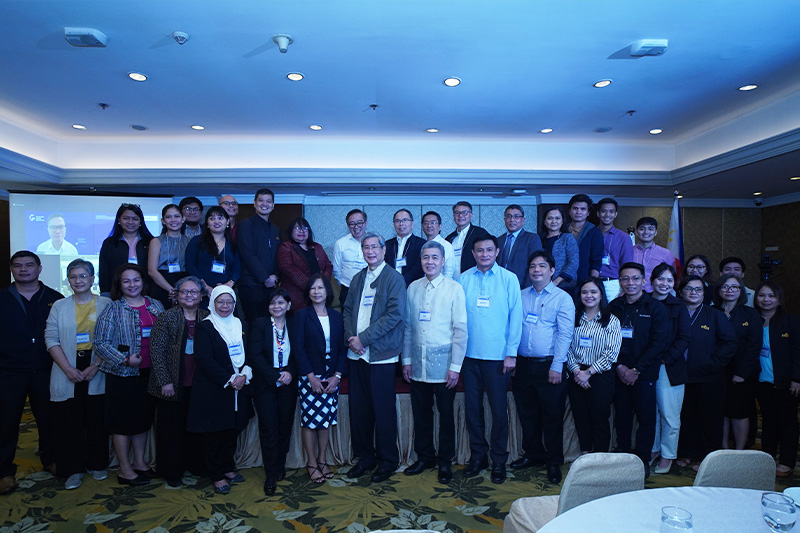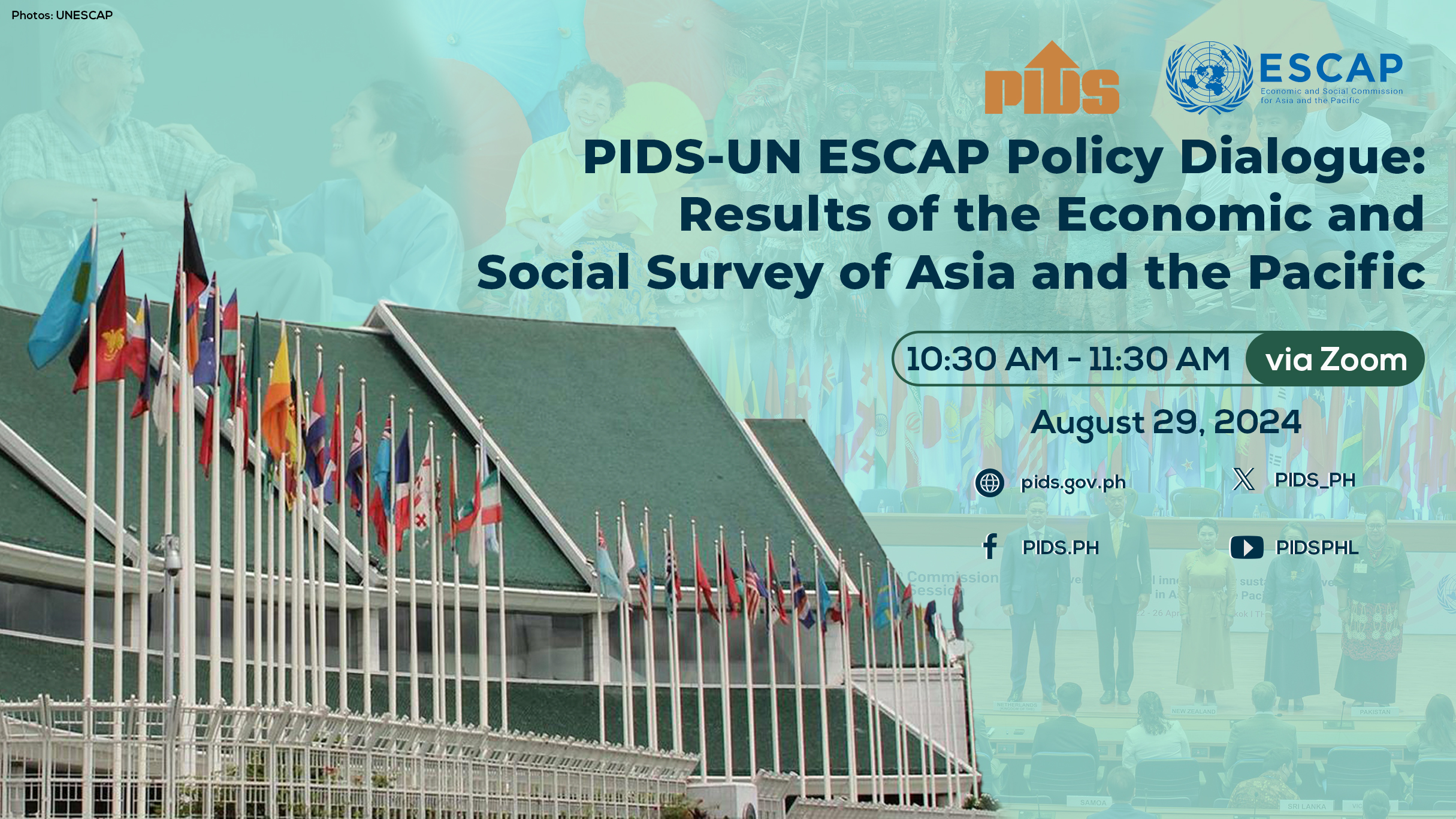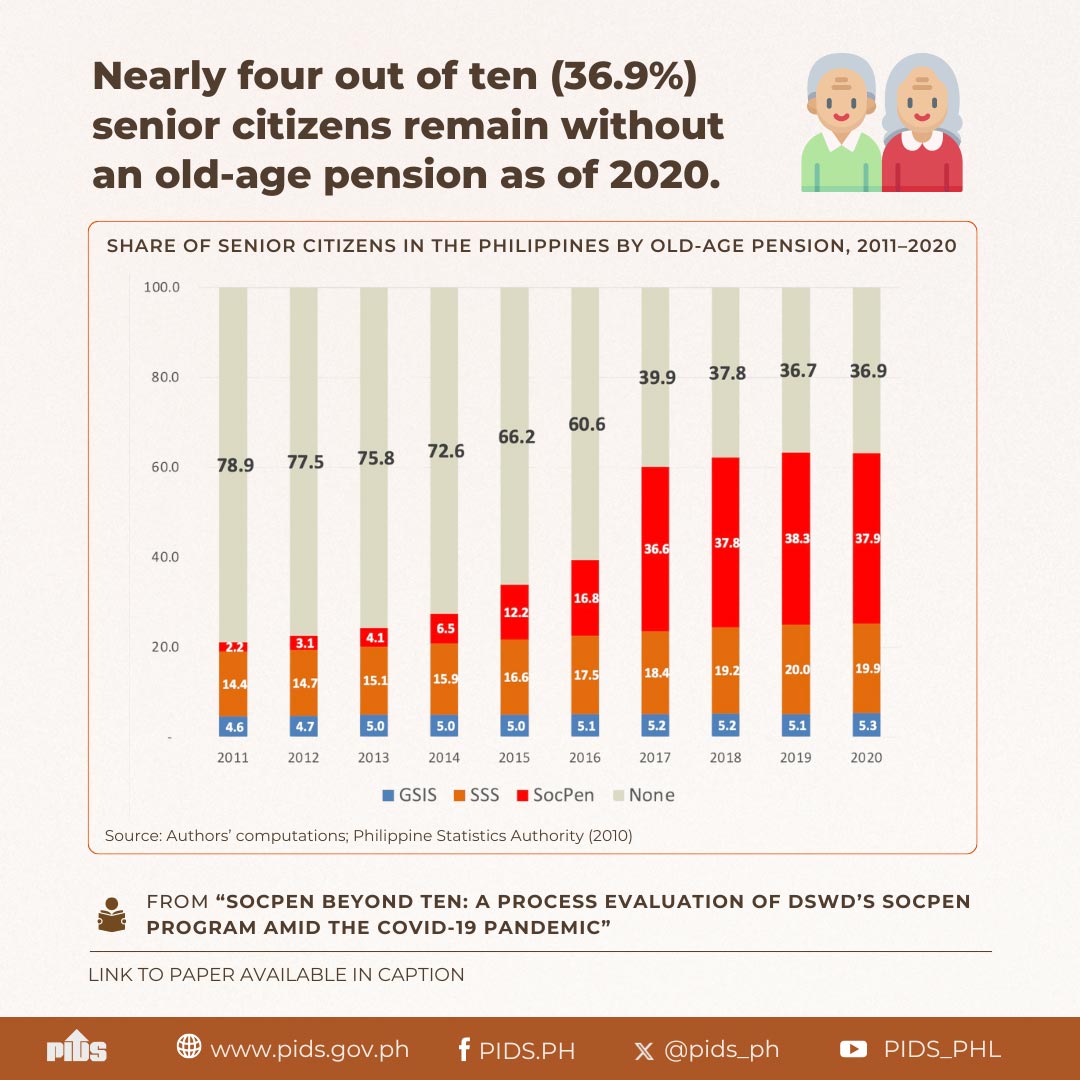THE government needs to be “more aggressive” in fighting for social protection coverage of Overseas Filipino Workers (OFWs) to ensure that they receive benefits while working abroad, according to the government’s think tank.
In a study titled Analyzing Filipino Migrant Workers’ Access to Social Protection, a research team led by Philippine Institute for Development Studies (PIDS) Research Fellow Aubrey D. Tabuga found that health insurance, overtime pay, paid sick leave, and work accident compensation are less common among OFWs.
They found that only a third or 39 percent of OFWs are paid for sick leaves; 45 percent are compensated for work-related accidents; and only 53 percent of OFWs have health insurance or medical allowance benefits.
“Government agencies mandated to promote the welfare of migrant workers must carry out more aggressive steps towards the inclusion of OFWs in social insurance,” the researchers said.
“This shows the urgency of effective mechanisms for dialogue with host country governments to ensure that OFWs obtain the adequate workers’ benefits while working abroad,” they also said.
The researchers found that based on the Philippine Statistics Authority (PSA) 2018 National Migration Survey, only an average of 35.3 percent of OFWs have health and pension benefits; and 37.8 percent do not have health and social insurance.
Some 14.9 percent have social insurance but do not have health insurance; while 12 percent have health insurance but do not have social insurance.
Further, the majority or 64.6 percent of 15 to 19 and 46.1 percent of 45 to 49 year olds who are staying in their first country abroad are living there without health and social insurance.
Not OWWA members
The researchers also found that less than half of OFWs are also members of the Overseas Workers Welfare Administration (OWWA) on their first international migration experience.
They noted that OWWA members and their families are provided with multiple and wide-ranging benefits from health and education to reintegration.
However, OWWA membership was relatively low. The researchers said during the first international migration experience, nearly half or 49 percent of working international migrants are non-OWWA members.
“Even though OWWA membership is mandatory, this is not as widespread as expected. Many OFWs may have bypassed this requirement perhaps when they first went out of the country not as workers,” the researchers said.
Data showed, the researchers said, Filipinos abroad who did not enter their host countries with a work visa/permit, OWWA membership is significantly low.
Of those with student visas, only 16.7 percent are OWWA members; tourist visa, 23.7 percent; and the rest did not need a visa with only 10.9 percent having OWWA membership.
In terms of employment, less than half of those working in managerial positions, skilled agricultural, forestry, and fishery sector, elementary occupation, and armed forces occupation are OWWA members.
The President recently signed the law creating the Department of Migrant Workers (DMW) that will merge all the government agencies engaged in OFW concerns.
This will turn the Philippine Overseas Employment Administration (POEA) into the DMW along with specialized offices of the DFA, DOLE, the Department of Social Welfare and Development and the Commission on Filipinos Overseas.
Under the law, OWWA, meanwhile, will no longer be an attached agency of the DOLE but of the DMW.
Govt must fight harder for OFW social protection coverage–state think tank

